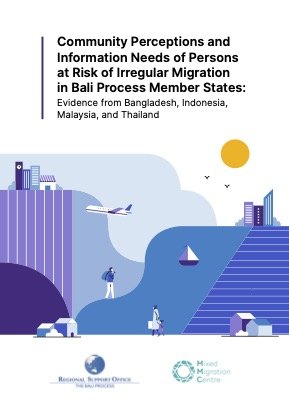By Bali Process RSO and MMC
Highlights
85% of respondents did not consider regular migration, primarily because regular pathways were not accessible to them.
The Rohingya face specific problems: their statelessness effectively bar them from regular pathways. 92% of Rohingya respondents—the highest among all respondents— reported that they did not consider regular migration pathways. 91% reported encountering protection incidents, compared to 47% of other Myanmar ethnic groups.
Overall, a notable portion of respondents indicated that they did not actively seek information before migrating. A higher proportion of women (41%) reported not actively seeking any information before migration, compared to men (29%).
Despite the presence of various formal awareness programs, only 4% of respondents received information from a formal programme before their journey. There appears to be a large disconnect between formal information channels and the informal networks that refugees and migrants actually rely on for advice.
Decision-Making Patterns: Awareness of risks doesn’t always deter irregular migration—98% of Indonesian respondents would still choose the same pathway, even though 45% recognize its negative aspects.
Bangkok, Regional Support Office of the Bali Process : Geneva, Mixed Migration Centre, 2025. 67p.


